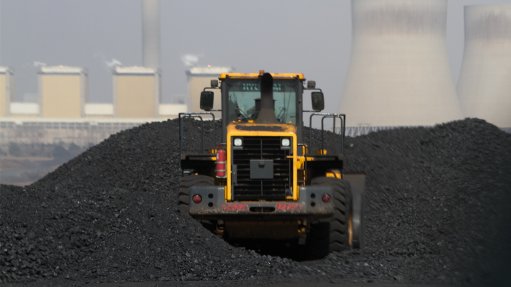
Photo by: Duane Daws
PERTH (miningweekly.com) – Coal miner Whitehaven Coal said on Thursday it was reviewing the implications of the New South Wales government’s decision to expand its domestic thermal coal reservation policy to include the majority of the state’s coal miners.
Reports emerged on Thursday that the state government would require thermal coal miners in the state reserve up to 10% of their output for domestic coal-fired power stations in a bid to address the near four-million tonnes a year of supply shortfall to meet the needs of power generators in the region.
This coal cap scheme will see New South Wales doing our part at the request of the Albanese government to contribute to the national solution of this national problem,” Treasurer Matt Kean was quoted as saying.
“I know those currently providing coal for the local market will appreciate that companies enjoying super profits on the back of the war in Ukraine will now do their part for the domestic market. Of course they should provide Australian production for Australian consumers.
“These new arrangements will help even the playing field among coal producers,” he said.
In December, the New South Wales government imposed domestic coal reservation and price cap orders on a number of New South Wales producers which have historically supplied coal to the domestic energy market to offer at least 18.6-million tonnes into the domestic market. These orders are to apply from April 1, 2023 to June 30, 2024 and are designed not to impact existing coal supply agreements.
The state government’s move followed on from the federal government in December introducing a 12-month price ceiling on domestic coal of A$125/t in New South Wales and Queensland in a bid to bring down domestic energy prices.
Whitehaven, which was not subject to the state government’s December orders, on Thursday said that the company had met with officials from the New South Wales government and was provided with an initial briefing on the proposed expansion of the reservation policy to include new participants, including Whitehaven.
The company said it was now reviewing the potential implications of an expanded scheme and would continue to engage with the New South Wales government and update the market as appropriate.
Meanwhile, the New South Wales Minerals Council called the state government’s coal price cap a "clumsy, politically-motivated market intervention designed in haste, with little or no consultation".
“The policy will have no meaningful impact on electricity prices, but will come at a significant economic cost,” said Minerals Council CEO Stephen Galilee.
“For transparency, the Energy Minister must release all modelling and analysis undertaken to justify the policy. This should include details on the expected impact on New South Wales energy prices relating specifically to the New South Wales government's coal price cap.
“Extending the policy to coal producers not currently involved in domestic coal supply is a radical change of approach that highlights how extremely rushed this policy process has been.”
Galilee pointed out that the state’s coal sector employs nearly 30 000 people and provides its most valuable export commodity.
“The sector relies on an efficient and sophisticated production, transport and logistics system, developed over decades. Forcing mines designed and approved for export to supply the domestic market will have significant impacts on existing supply chains and the transport system, pushing up costs and risks,” he added.
“More broadly, the price cap policy undermines the reputation of NSW as an investment destination, and as trading partner and supplier to our critical export markets overseas. It will threaten future investment in NSW across the resources and energy sector, and more broadly.
“New South Wales coal producers will continue to engage with New South Wales government officials in the weeks ahead in an attempt to minimise the economic damage of this flawed policy.”